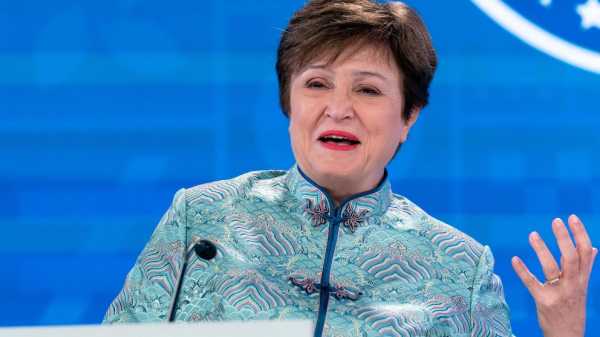
WASHINGTON — The global economy has shown “remarkable resilience’’ but still bears deep scars from the coronavirus pandemic, the war in Ukraine and rising interest rates, the head of the International Monetary Fund said Thursday.
“While the recovery from the shocks of the past few years continues, it is slow and it is uneven,’’ IMF Managing Director Kristalina Georgieva said in a speech in Abidjan, Ivory Coast, ahead of next week’s fall meetings of the IMF and the World Bank.
Global economic growth is likely to remain well below the 3.8% average of the past two decades and the world has lost $3.7 trillion in economic output from successive shocks since 2020, Georgieva said. The IMF releases its official growth forecasts Tuesday.
The United States, she said, “is the only major economy where output has returned to its pre-pandemic path. The rest of the world is still below trend.’’
The poorest countries are suffering the most because they have a limited ability to “buffer their economies and support the most vulnerable," she said. Weighing on global growth is China’s disappointing recovery despite the lifting late last year of draconian zero-COVID policies, which had crippled commerce in the world's second-biggest economy last year.
Still, Georgieva said the world economy has proven unexpectedly sturdy in the face of higher interest rates, engineered by the U.S. Federal Reserve and other central banks to fight inflation that surged over the past two years. She said the odds are rising that global economy can manage a “soft landing’’ — avoiding recession even while bringing down inflationary pressure.
“Fighting inflation is the number one priority,’’ she said, urging central banks to keep interest rates “higher for longer. It is paramount to avoid a premature easing of policy, given the risk of resurging inflation.’’
The IMF-World Bank meetings begin Monday in Marrakesh, Morocco.
___
Associated Press writer Sam Metz in Rabat, Morocco, contributed to this report.
Sourse: abcnews.go.com






